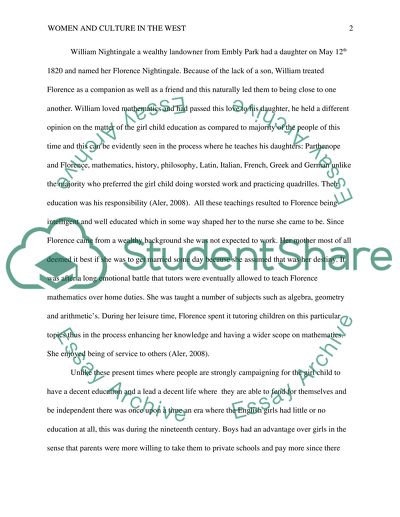Cite this document
(“Women and Culture in the West Research Paper Example | Topics and Well Written Essays - 1500 words”, n.d.)
Women and Culture in the West Research Paper Example | Topics and Well Written Essays - 1500 words. Retrieved from https://studentshare.org/history/1584951-women-and-culture-in-the-west
Women and Culture in the West Research Paper Example | Topics and Well Written Essays - 1500 words. Retrieved from https://studentshare.org/history/1584951-women-and-culture-in-the-west
(Women and Culture in the West Research Paper Example | Topics and Well Written Essays - 1500 Words)
Women and Culture in the West Research Paper Example | Topics and Well Written Essays - 1500 Words. https://studentshare.org/history/1584951-women-and-culture-in-the-west.
Women and Culture in the West Research Paper Example | Topics and Well Written Essays - 1500 Words. https://studentshare.org/history/1584951-women-and-culture-in-the-west.
“Women and Culture in the West Research Paper Example | Topics and Well Written Essays - 1500 Words”, n.d. https://studentshare.org/history/1584951-women-and-culture-in-the-west.


